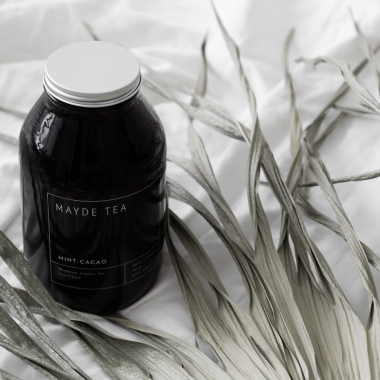Integrative guide to digestive health - part one

As a naturopath my first instinct is to treat the gut.
This is where our immune system lives, our serotonin is produced, and our nutrients are absorbed. So, in a nutshell, (part one of) my guide to good digestive health.
** please note that this is general advice only and I recommend you to see a naturopath or other registered practitioner with any functional digestive disorders. x
1. Mindful eating.
You may have heard about the two parts that make up our nervous system- the sympathetic which is needed for our fight or flight response, and the parasympathetic which is also known as ‘rest and digest.’
We need to be in a relaxed state, or without sympathetic dominance to be able to digest our food optimally. Eating mindfully means that we are relaxed enough for our parasympathetic nervous system to do it’s enormous job of digesting food and absorbing it’s nutrients.
2. Eat fermented foods – but don’t overdo it!
Fermented foods are those that have been through a process called lactofermentation. Once foods go through this process, the end result is full of B vitamins, omega-3’s, and various strains of probiotics.
When we eat too much sugar, processed foods and alcohol, the good and bad bacteria can become imbalanced. Consuming things like yoghurt, sauerkraut, kimchee and other fermented vegetables will introduce live beneficial bacteria to the digestive system to help rebalance this.
Although these foods change the state of our digestive system in a positive way, some people do have reactions such as bloating or flatulence when introducing these foods- so introduce them slowly and be mindful of how they make you feel.
3. Fibre
Fibre has many jobs to aid in digestion and bowel function. Insoluble fibre is able to pass through the digestive system with minimal changes. This is beneficial because it can bind to waste to be excreted from the body, eliminating toxins and ensuring a good bowel motility.
Eating fibre from natural sources such as wholegrains, vegetables and fruits means you’re going to get the vitamins, minerals and other wholefood benefits- so opt for this rather than the processed fibre sources.
4. Identify food intolerances and food sensitivities.
Food allergies and intolerances are different types of reactions, but both are important to treat mindfully by excluding the reactive foods completely from the diet. Intolerances are more common, and often include lactose, gluten and fructose.
If we continue to consume foods that cause a reaction in our body this can cause inflammation, gradually heighten the response to it, as well as potentially cause permanent damage to your digestive system. This can lead to intestinal permeability, or leaky gut,which may inhibit the ability to digest and absorb nutrients.
Approximately 20% of people have reported reactions to certain foods, although this seems to be on the rise – possibly due to a reduction in food quality, increase in preservatives, additives and insecticides, and food processing practices.


Leave a comment
This site is protected by hCaptcha and the hCaptcha Privacy Policy and Terms of Service apply.